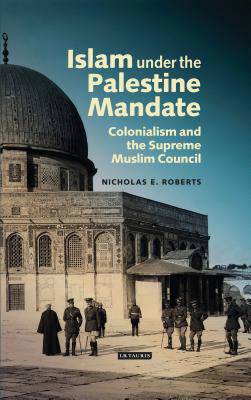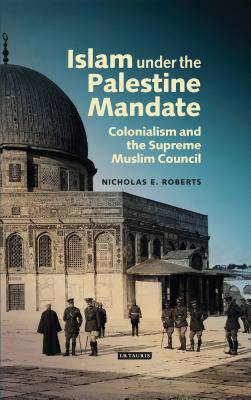
- Retrait gratuit dans votre magasin Club
- 7.000.000 titres dans notre catalogue
- Payer en toute sécurité
- Toujours un magasin près de chez vous
- Retrait gratuit dans votre magasin Club
- 7.000.0000 titres dans notre catalogue
- Payer en toute sécurité
- Toujours un magasin près de chez vous
271,45 €
+ 542 points
Description
Concerns about the place of Islam in Palestinian politics are familiar to those studying the history of the modern Middle East. A significant but often misunderstood part of this history is the rise of Islamic opposition to the British in Mandate Palestine during the 1920s and 1930s. Across the empire, imperial officials wrestled with the question of how to rule over a Muslim-majority countries and came to see traditional Islamic institutions as essential for maintaining order. Islam under the Palestine Mandate tells the story of the search for a viable Islamic institution in Palestine and the subsequent invention of the Supreme Muslim Council. As a body with political recognition, institutional autonomy and financial power, the council was designed to be a counterweight to the growing popularity of nationalism among Palestinians. However, rather than extinguishing the revolutionary capacity of the colonized, it would become a significant opponent of British rule under its highly controversial president, the Grand Mufti of Jerusalem, Hajj Amin al-Husayni.
Making extensive use of primary sources from British and Israeli archives, this book offers an innovative account of the Supreme Muslim Council's place within a colonial project that aimed to control Palestinian religion and politics. Roberts argues against the standard view that the council's creation was an act of appeasement towards Muslim opinion, showing how British actions were guided by techniques of imperial administration used elsewhere in the empire.
Making extensive use of primary sources from British and Israeli archives, this book offers an innovative account of the Supreme Muslim Council's place within a colonial project that aimed to control Palestinian religion and politics. Roberts argues against the standard view that the council's creation was an act of appeasement towards Muslim opinion, showing how British actions were guided by techniques of imperial administration used elsewhere in the empire.
Spécifications
Parties prenantes
- Auteur(s) :
- Editeur:
Contenu
- Nombre de pages :
- 256
- Langue:
- Anglais
- Collection :
- Tome:
- n° 57
Caractéristiques
- EAN:
- 9781784531355
- Date de parution :
- 30-01-17
- Format:
- Livre relié
- Format numérique:
- Genaaid
- Dimensions :
- 140 mm x 218 mm
- Poids :
- 453 g

Les avis
Nous publions uniquement les avis qui respectent les conditions requises. Consultez nos conditions pour les avis.






